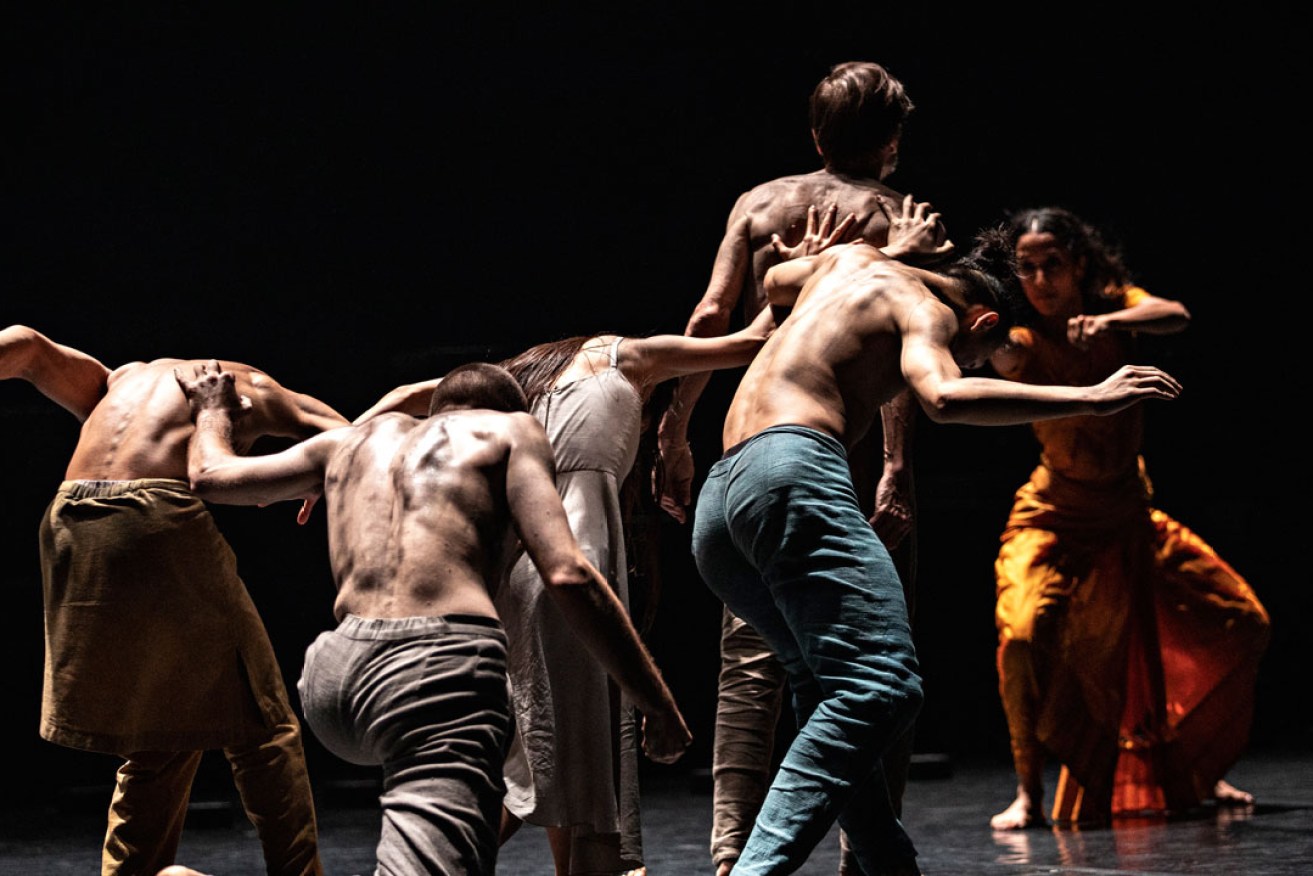OzAsia review: Outwitting the Devil
Akram Khan’s gift for expressing profound allegories of the human condition through contemporary dance is as present as ever through the emotional power, pathos and beauty of this performance by six outstandingly skilled dancers.


Akram Khan Company's Outwitting the Devil. Photo: Jean Louis Fernandez
Following his retirement from dancing after his performance in XENOS at last year’s Adelaide Festival, Outwitting the Devil is the acclaimed Akram Khan’s first work in which he is absent from the stage. But any concerns about this loss are misplaced: he is still powerfully present in his choreography and direction of dancers Ching-Ying Chien, Dominique Petit, Mythili Prakash, Sam Asa Pratt, James Vu Anh Pham and Jasper Narvaez, whose technical mastery gives full force to the intense emotional expression characteristic of Khan’s work.
The question of what or who the Devil of the title is is as fluid as the interpretation of the Epic of Gilgamesh, the oldest literary text known to humankind. Pieced together from fragments of cuneiform tablets over 3800 years old, this epic poem tells of the legend of Gilgamesh, ruler turned demigod of the ancient kingdom of Uruk.
The recently discovered fragment which inspires Khan’s work contains a rare description of the natural world, a verse in which Gilgamesh and his wild-man companion Enkidu enter the Cedar Forest, home of the gods and all living creatures, killing its guardian and chopping down its trees for his city’s temple.
French-Canadian writer Jordan Tannahill’s inventory of creatures of the forest is interrupted by the repetition of the word homme, reflecting an idea held by some scholars that this ancient text may be the world’s first eco-poem: a warning from the dawn of the Anthropocene age.
On stage, there are two Gilgameshes — one, the youthful, arrogant and despotic ruler, the other, the older man grown wise and remorseful for his actions, now confronting his mortality and grieving over the death of his friend Enkidu who was killed by the golden-clad goddess Ishtar to punish the young Gilgamesh for his arrogance.
An understanding of this legend isn’t necessary, however, to feel the full emotional force of this performance. The intense physicality of the dancers, ranging in age from 25 to 68 and from different cultures and dance traditions, is viscerally felt and heightened to perfection by the excellent soundscape, sparse stage set and lighting.
From the curl of their fingers and toes to their facial expressions, the full force of humanity’s woe blasts us from the stage, leaving us breathless and emotionally spent as the lights go down.
Khan said that the Devil, initially, was Time — a personal reflection on ageing felt keenly by a man who has danced all his life. But as the work progressed, he realised the Devil might be humanity itself. Khan’s invention of a physical language allows him to express this: that piecing together fragments of ancient myths in order to learn from humanity’s mistakes; the gathering together of the full diversity of humankind to learn from history; the value given to community over the wilful desires of individual mortals may be the only way to outwit the Devil, and to survive an uncertain future threatened by environmental destruction of our own making.
The final performance of Outwitting the Devil is being presented at the Dunstan Playhouse tonight as part of the 2019 OzAsia Festival, which closes tomorrow (November 3). Read all InDaily and CityMag’s OzAsia stories and reviews here.




